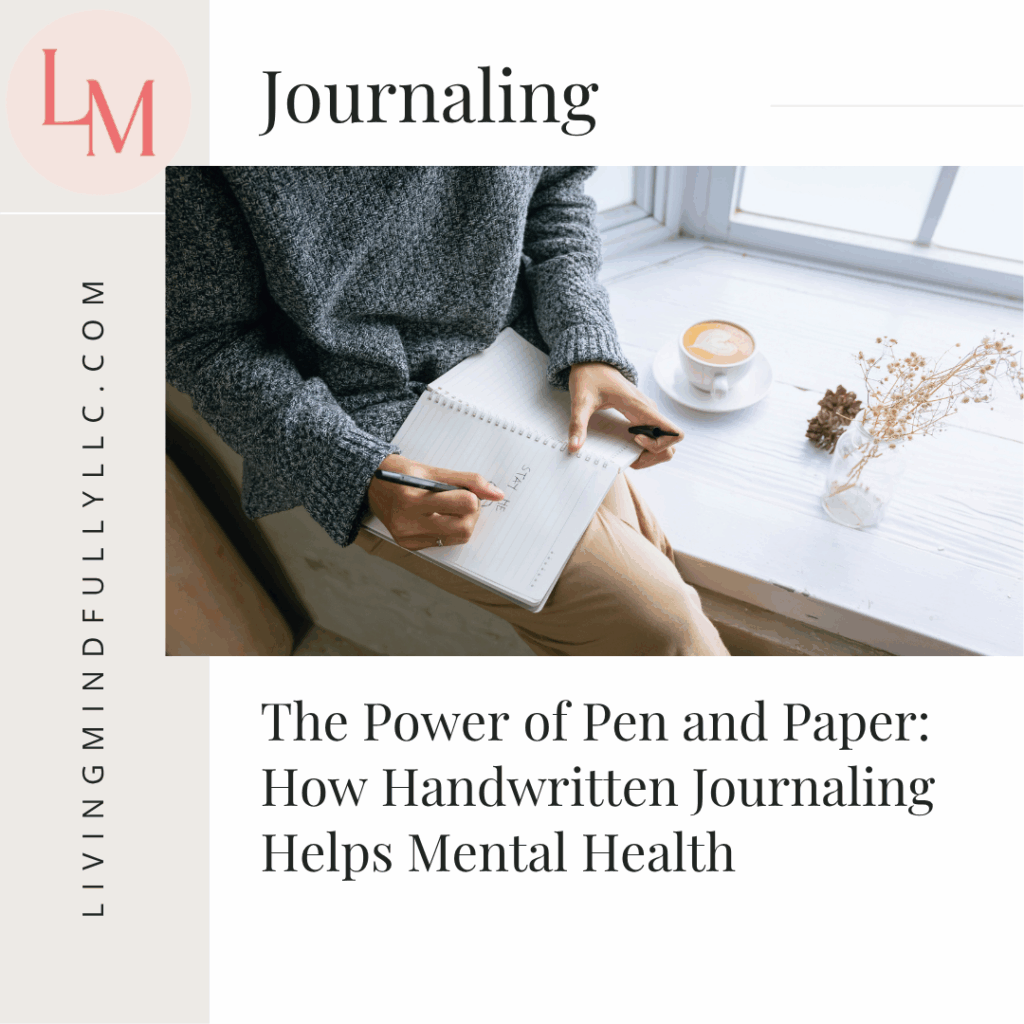
Journaling for Mental Health
The Power of Pen and Paper: How Handwritten Journaling Supports Mental Health
In our fast-paced, screen-filled lives, it’s easy to forget the simple, transformative act of putting pen to paper. Journaling—especially when done by hand—is more than a creative outlet; it’s a powerful tool for mental and emotional well-being.
Recent neuroscience studies show that handwriting activates far more of the brain than typing. Researchers at the Norwegian University of Science and Technology found that writing by hand engages the parietal lobes (involved in sensory integration and spatial awareness), the prefrontal cortex (linked to planning, emotional regulation, and decision-making), and the hippocampus (critical for memory formation). The act of forming letters stimulates theta and alpha brainwave activity, which supports working memory, deep focus, and calm mental states.
This richer brain activation is due to the complex sensory-motor process of handwriting—gripping the pen, controlling pressure, and coordinating fine motor movements—all while processing thoughts and emotions. Unlike typing, which is largely repetitive and localized in the brain, handwriting creates stronger neural connectivity across both hemispheres, which can improve memory retention and emotional processing.
From a mental health perspective, journaling offers a private, judgment-free space to process thoughts and emotions. The slowed pace of handwriting encourages mindfulness; you naturally pause, reflect, and connect with your inner experience. This can lower physiological stress markers, such as heart rate and muscle tension, much like meditation. Scientific American notes that these sensory-motor pathways may help calm the nervous system, making journaling an effective self-regulation tool during times of overwhelm.
If you’re new to journaling, start small. Dedicate 5–10 minutes each day to writing without judgment or editing. Prompts like “What am I feeling right now?” or “What’s one thing I can let go of today?” can spark meaningful reflection.
Our licensed therapist, Staci Vanzant, LCSW, NBC-HWC, often incorporates handwritten journaling into therapy to help clients slow down, gain clarity, and reconnect with themselves.
Ready to start your own pen-and-paper practice? Contact Living Mindfully, LLC today to learn more.

Staci Vanzant
LCSW, NBC-HWC
